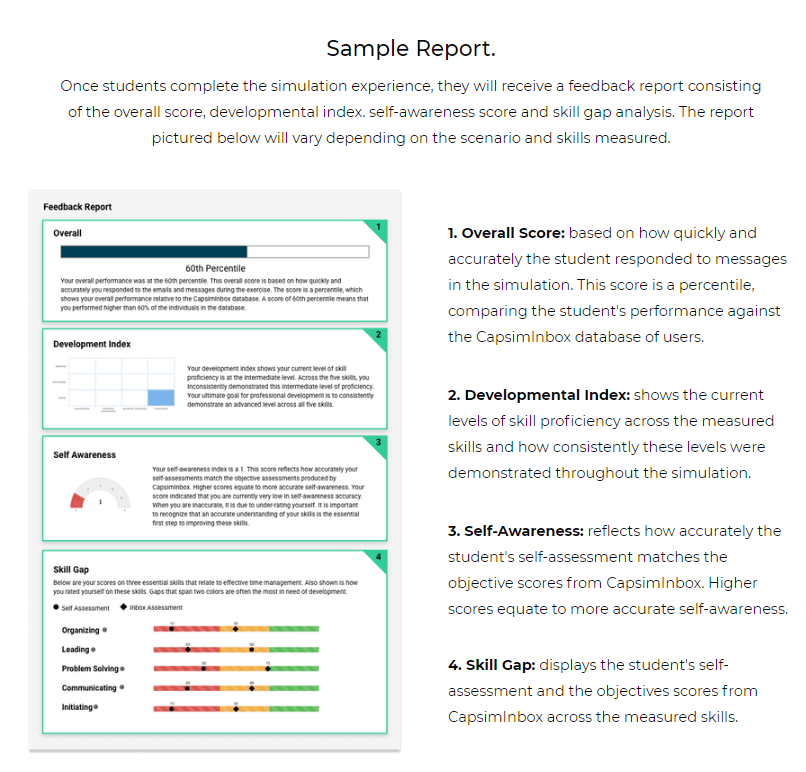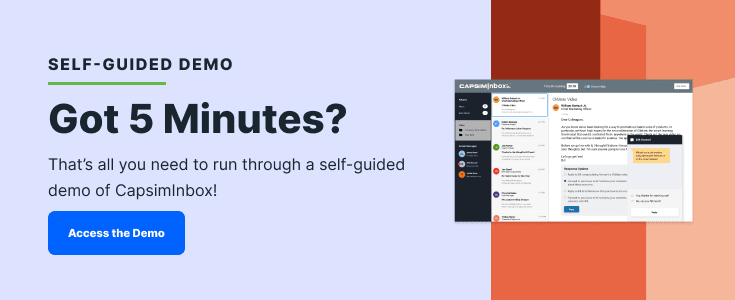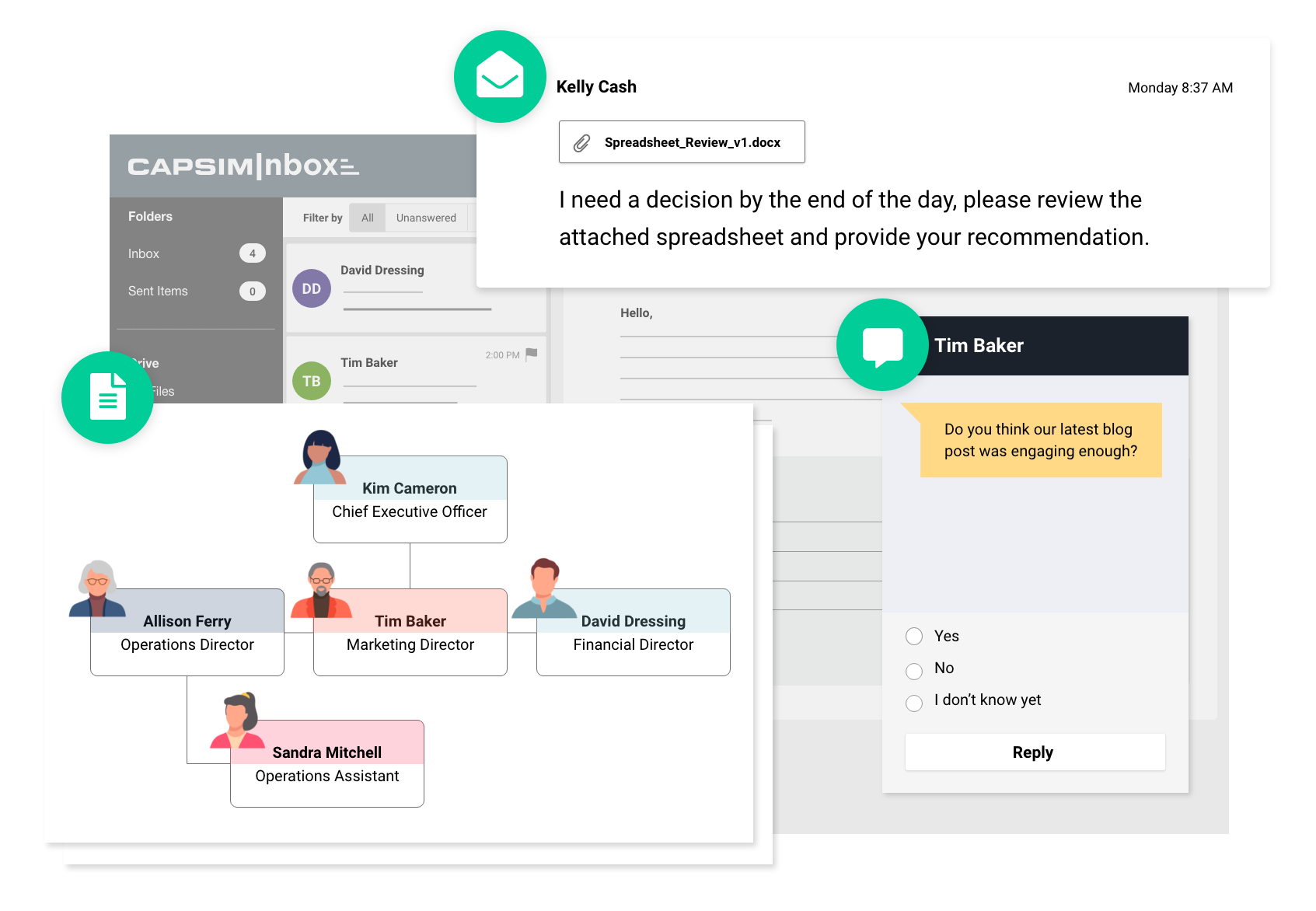4 Innovative Ways Companies are Using Soft Skill Training for Employees
August 25, 2021

Are you missing out on the latest uses of soft skill training for employees?
The benefits of soft skill training are boundless. It’s time your company started reaping those benefits. The secret to successful soft skill training and application is using relevant real-world situations.
Without real-world application, employees end up with inapplicable training and a skill gap with no resolution.
Let’s explore how companies are currently using interactive soft skills training and how your company can put it into practice. We’ll also review actual case studies and client experiences of how companies use soft skill training for employees.
How to use Soft Skill Training for Employees
Soft skill training is an incredible resource for your employees. Traditionally the problem with soft skill training is its efficiency and effectiveness. Soft skill training focuses on improving someone’s particular characteristics, such as communication abilities and decision-making.
So, why isn’t traditional soft skill training as effective for employees?
Traditional soft skill training methods like in-person sessions focused on situational questions and reading body language are outdated, subject to bias, and challenging to track progress accurately. We’ve set out to fix this common problem in the workplace.
CapsimInbox, an interactive, inbox simulation platform provides real-world use scenarios in an immersive learning environment. Unlike on-the-job soft skill training, you don’t need dozens of in-person training hours, and you have objective data to track progress.
Let’s review how companies use soft skill training for employees in their companies and some live examples of how our clients use simulation training with CapsimInbox.
1. Applying Communication Training
Improving your employees’ communication skills is more than just them responding to emails faster. It’s about effective communication with coworkers and clients to benefit your company as a whole. Mark Sanborn famously said, “In teamwork, silence isn’t golden; it’s deadly.” While soft skill training isn’t a matter of life and death, it can either be an advantage or a missed opportunity to deliver a great experience to your customers.
Your internal and client-facing processes are significantly affected by poor communication. Recent studies have shown that 28% of employees report poor communication as the reason for late deadline deliveries.
This productivity problem also ends up costing your company money down the line. When miscommunication occurs consistently, it can cost businesses with 100 employees an average of $420,000 per year.
Simulation-based soft skill training positively impacts communication skills in many ways, such as:
- Identifying poor communication habits
- Providing direct, actionable feedback on how to improve employees’ communication skills
- Giving employees realistic case studies and scenarios with real-world context
- Assessing skill gaps through self-assessment and objective testing
2. Providing Situational Training
Your employees should feel like they have the skills and aptitude to think their way through challenges and situations they encounter. The traditional way this happens is with on-the-job training and in-person practice.
On-the-job training can work because your employees get to put theory into practice with real-world context. However, the main problems with OJT are the resources, cost, and time it takes to complete.
If you want to use situational training but don’t want the price tag that comes with it, you’ve come to the right place. Immersive and interactive soft skill training software, like CapsimInbox, allows your employees to learn how to think and respond to real-life situations.
How does situational training affect companies? Here’s an example from one of our clients:
“CapsimInbox has quickly become an integral part of our educational process. The ability to immerse learners in real-world simulations provides direct parallels to the financial industry and helps develop the soft skills necessary to thrive in any career.”
-Myles Gage, Co-Founder of Rapunzl
3. Assessing Job Candidates Effectively
Soft skill assessments are excellent for measuring the skills of your job candidates or current employees. For your employees, this helps identify skill gaps and provides resources for improvement. In contrast, for job candidates, soft skill assessments help you determine if someone will fit in with your company culture and respond correctly in challenging real-world situations.
The best way to measure job candidate and employee soft skills is to use interactive assessments that provide instant feedback. This optimizes the experience for your participant and engages them while providing you with the most accurate results.
For example, Reach HR uses CapsimInbox to reduce their clients’ interview process time by 50% through:
- Building interactive simulations customized to specific skill sets per role
- Requiring applicants to go through their simulations
- Using simulation results as a deciding factor for interview decisions
4. Post-Training Assessments & Improvement
Companies are also utilizing assessments to provide follow-up training for their employees. This technique is innovative when paired with microlearning simulations. Interactive microlearning simulations are brief training sessions meant to improve particular skills or refresh your employees’ familiarity with specific topics.
After a soft skill training simulation, your employees receive an automated feedback report with several metrics.

Pairing detailed, accurate reporting and subsequent training give you the last puzzle pieces to help your employees improve their soft skills. As your employees continue to improve their skills, they can look at the difference in their skill gap, self-awareness score, developmental index, and overall performance.
Your Soft Skill Assessment Solution
Soft skill training for employees is a valuable and efficient way to engage your employees in their professional development. Overall the impact of your employees’ soft skills will be felt throughout the company and with your clients.
We work with companies across many industries that need assistance improving their employees’ soft skills. Using CapsimInbox, clients are able to customize soft skill training to exactly what their employees need.
Get access to a free demo and pilot account to see how CapsimInbox can help your employees develop their soft skills.





.png?width=80&name=1-questions%20(1).png)